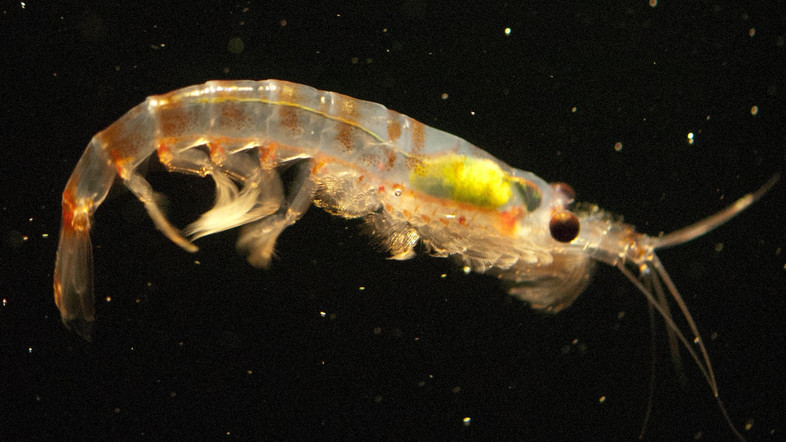
They may be at the base of the natural pecking order, yet krill could turn out to be a mystery weapon in the battle against the developing danger of plastic contamination on the planet’s seas.
New research Friday demonstrated the minor zooplankton are fit for processing microplastics – under five millimeters (0.2 inches) – before discharging them once more into the earth in a significantly littler shape.
Study creator Amanda Dawson unearthed the finding while at the same time chipping away at a task including microbeads – polyethylene plastic frequently utilized as a part of makeup, for example, confront cleans – at the Australian Antarctic Division’s krill aquarium to check the dangerous impacts of contamination.
“We understood that krill really separate plastic, it was astounding,” the specialist from Australia’s Griffith University told AFP.
Small however relentless
“It’s hard to know precisely what the ramifications of this could be, yet the hypothesis is that since plastics in the sea are as of now corrupted and more delicate, they would be considerably less demanding for krill to separate.”
The issue of plastic contamination is far reaching, and quickly deteriorating.
Consistently, in excess of eight million tons winds up in the sea, costing billions of dollars in harm to marine biological systems and executing an expected one million ocean winged creatures, 100,000 ocean well evolved creatures and untold quantities of fish, examines have appeared.
UN Secretary General Antonio Guterres a year ago refered to one investigation that indicated plastic could exceed angle in 2050 if nothing was finished.
Australian Antarctic Division krill researcher and study co-creator So Kawaguchi said this was the first run through researchers had inspected microplastics processed by the shellfish.
Distributed in Nature Communications, it found the pieces discharged were, all things considered, 78 percent littler than the first globules with some lessened by 94 percent.
Finding a ‘twofold edged sword’
“It’s another pathway for microplastics to cooperate with the biological system”
Kawaguchi said.
He included that the exploration proposed other zooplankton with comparable stomach related frameworks may likewise have the capacity to separate microplastics.
In any case, Dawson forewarned the finding could likewise be a twofold edged sword, refering to the potential for poisons to be passed down the natural way of life as the littler discharged particles ended up accessible to life forms that would not have the capacity to ingest bigger ones.
“We’ve scarcely touched the most superficial layer and more work is required”
she said.
Krill are zooplankton spineless creatures that buoy in tremendous swarms in seas everywhere throughout the world. Scarcely the measure of a paper-cut, they can live for a long time and are a standout amongst the most plenteous creature species.